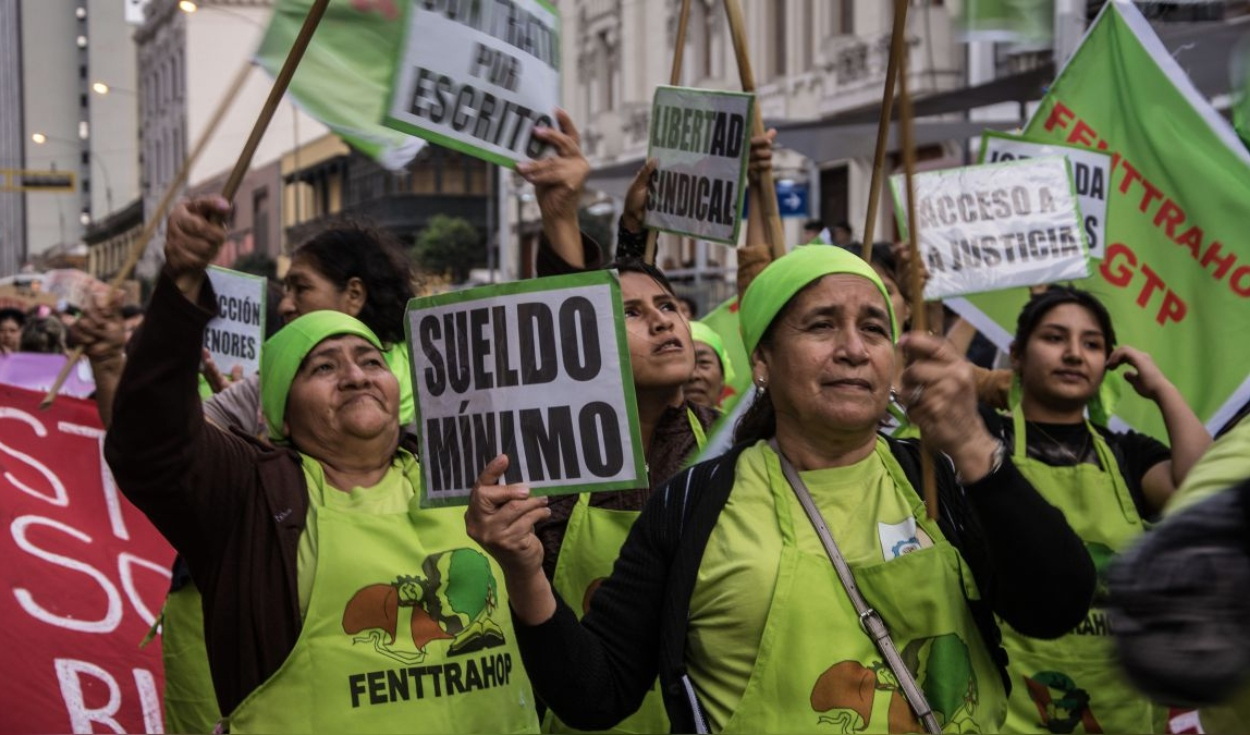
Every March 30, the Peruvian State recognizes a group of workers, who for years lived in marginalization and without labor rights. Despite being an important piece in the maintenance of homes, only in recent times has this sector that worked in informal situations – and, therefore, prone to being victims of abuse by their employers – managed to become recognize your job.
In 2020, Law 31047 was enacted, a very important norm for this group of workers who perform domestic work and who, according to figures from the Ministry of the Interior, represent 96% of the 400,000 Peruvian men and women linked to this profession. Below, find out who is commemorating a paid non-working holiday this Saturday, March 30.
Which workers are the only ones who rest this March 30?
Domestic workers are the only ones who enjoy a non-working holiday this March 30. This measure applies to all people who perform cleaning, cooking, childcare, among other domestic tasks, within a home.
It is important to note that this paid rest must be respected by employers and cannot be compensated with another day of rest or with additional payment.
Domestic workers must rest for non-working holidays: what are their rights?
Within the framework of Law 31047, which regulates this type of work, domestic workers are considered to be any person over 18 years of age who receives payment for performing jobs related to the development of the life of a home and the maintenance of a house or room. .
The central objective of the law on domestic workers seeks to equalize their rights with those of workers in private activity, which implies having access to a minimum vital remuneration, bonuses, vacation rest periods and holidays, as well as adequate working conditions.
In addition, it is established that the remuneration of a domestic worker cannot be less than the minimum vital remuneration (RMV). In relation to working hours, the law establishes that these can be full-time or hourly. Likewise, domestic work can be carried out in the residence or outside. Below, review your main rights:
- Workday: They should not exceed 8 hours per day or 48 hours per week.
- Weekly rest: They are entitled to 24 consecutive hours of rest per week.
- Vacation: They are entitled to 30 days of paid vacation per year.
- Social Security: They must be affiliated with a social security system that covers medical care and pensions.
- Work contract: They must have a written employment contract that specifies working conditions.
Finally, domestic workers have the right to receive a bonus for National Holidays and Christmas. In that sense, they enjoy the same labor rights as any worker who works in a private company, such as freedom of association, collective bargaining, the right to strike, among others.
What are the sanctions for those who do not comply with the rights of domestic workers?
If a domestic worker sees that her employer is failing to comply with her rights, she can go in person to the National Superintendence of Labor Supervision, the body that is responsible for carrying out supervision tasks in the workplace. Likewise, there is a sanctions scheme to increase the responsibility of employers in the domestic space:
- In the case of a minor infraction, a penalty equivalent to 0.05 of a UIT is assigned.
- In the case of a serious violation, a penalty equivalent to 0.13 of a ITU is assigned.
- In the case of a very serious violation, a penalty equivalent to 0.25 of a ITU is assigned.
- In the case of a very serious infraction, typified in sections 25.7 and 25.18 of article 25, a penalty equivalent to 4.50 of an ITU is assigned.
Source: Larepublica
Alia is a professional author and journalist, working at 247 news agency. She writes on various topics from economy news to general interest pieces, providing readers with relevant and informative content. With years of experience, she brings a unique perspective and in-depth analysis to her work.












